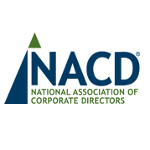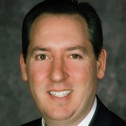A survey report released today by public relations firm Greentarget demonstrates that while senior legal officers acknowledge the importance of communications with stakeholders during high-profile lawsuits, the majority have outdated strategies or no strategies at all to direct communications outside of court.
This lack of preparation leads to an overly conservative approach defined by decisions and actions that are often impulsive and governed by the fear of negative media attention. Ironically, these instincts can compound the likelihood of reputational damage.
This vicious cycle – an increasing number of high-profile lawsuits, deficient planning, conservative approaches, and the resulting potential negative attention – is exacerbated by the lack of accountability at most organizations, Greentarget writes in a release. The majority of respondents said that they are not ultimately responsible for communications strategy outside of court. They stated that other senior leaders in their organizations have final authority and that their CEOs were either actively involved throughout litigation or at least engaged major decisions.
The vast majority of the 73 survey respondents, about three-quarters of whom are in senior legal roles for organizations with at least $500 million in annual revenue, said they have contended with at least one high-profile lawsuit in the past year.
“Most lawyers and their clients can predict what lawsuits would be most damaging to their organizations, and they should take some level of control and prepare for what’s to come,” said Larry Larsen, senior vice president of Greentarget and head of the firm’s Crisis & Litigation Communications Group. “Companies that give forethought to potential legal situations will have more effective and timely responses. In today’s world of immediate and unending news coverage, premediated statements made at the onset of crises can save companies from substantial reputational harm and years of damage control.”
The Highlights
Relentless litigation: In the last 12 months, 82 percent of respondents have been involved in at least one high-profile litigation action.
Unprepared and unaccountable: 62 percent of respondents have no crisis team identified and no plans in place, or have plans in place that have not been updated since their creation. Furthermore, only 37 percent said they were ultimately responsible for litigation communications in high-profile situations.
The boss is watching: 86 percent of respondents felt the external communications surrounding a high-profile litigation were somewhat or very important to the organization. Sixty-one percent indicated that their CEO is either actively involved throughout the process, or at least actively involved in the major decisions during the case.
A fear of critical press: Respondents said concern about negative media coverage and media attention that might negatively affect cases were by far the greatest impediments to more aggressive communications.
The seemingly careful route: 58 percent of respondents agreed that their organizations tend to act more conservatively than necessary when communicating externally about litigation matters
“Through our work with the world’s leading law firms, we see every day how smart, deliberate communications can influence and support successful legal outcomes,” said Aaron Schoenherr, founding partner of Greentarget. “While an organization’s legal strategy should take the lead, much more can be done to get communications and legal working together more effectively. That’s an important conversation and one we’re uniquely positioned to lead.”
Read a summary of the report.
 The trial law firm
The trial law firm  The whistleblower, employment and civil rights law firm
The whistleblower, employment and civil rights law firm  The Department of Justice plans to release a set of questions in the coming weeks that companies implicated in wrongdoing can expect to be asked by investigators concerning their compliance programs, reports
The Department of Justice plans to release a set of questions in the coming weeks that companies implicated in wrongdoing can expect to be asked by investigators concerning their compliance programs, reports  Many companies in the technology industry pay workers as “independent contractors” or “1099 workers,” write
Many companies in the technology industry pay workers as “independent contractors” or “1099 workers,” write  One the world’s largest telecommunications companies and its subsidiary agreed to fines and forfeitures with U.S. and Dutch authorities totaling more than $800 million to resolve a long-running bribery scheme involving a government official in Uzbekistan, USA Today
One the world’s largest telecommunications companies and its subsidiary agreed to fines and forfeitures with U.S. and Dutch authorities totaling more than $800 million to resolve a long-running bribery scheme involving a government official in Uzbekistan, USA Today  M&A deal volume in the U.S. reached a record high in 2015, reports the National Association of Corporate Directors. The NACD is offering a complimentary
M&A deal volume in the U.S. reached a record high in 2015, reports the National Association of Corporate Directors. The NACD is offering a complimentary  Akerman LLP, a top 100 U.S. law firm, has announced
Akerman LLP, a top 100 U.S. law firm, has announced  David A. Lurker has joined Buchalter Nemer in Orange County as a shareholder in its Real Estate Practice Group, the firm
David A. Lurker has joined Buchalter Nemer in Orange County as a shareholder in its Real Estate Practice Group, the firm  The computers at Hollywood Presbyterian Medical Center have been down for more than a week as the Southern California hospital works to recover from a Ransomware attack, reports
The computers at Hollywood Presbyterian Medical Center have been down for more than a week as the Southern California hospital works to recover from a Ransomware attack, reports  Most questions of arbitrability can be resolved on motion, using a summary judgment-like standard, writes
Most questions of arbitrability can be resolved on motion, using a summary judgment-like standard, writes